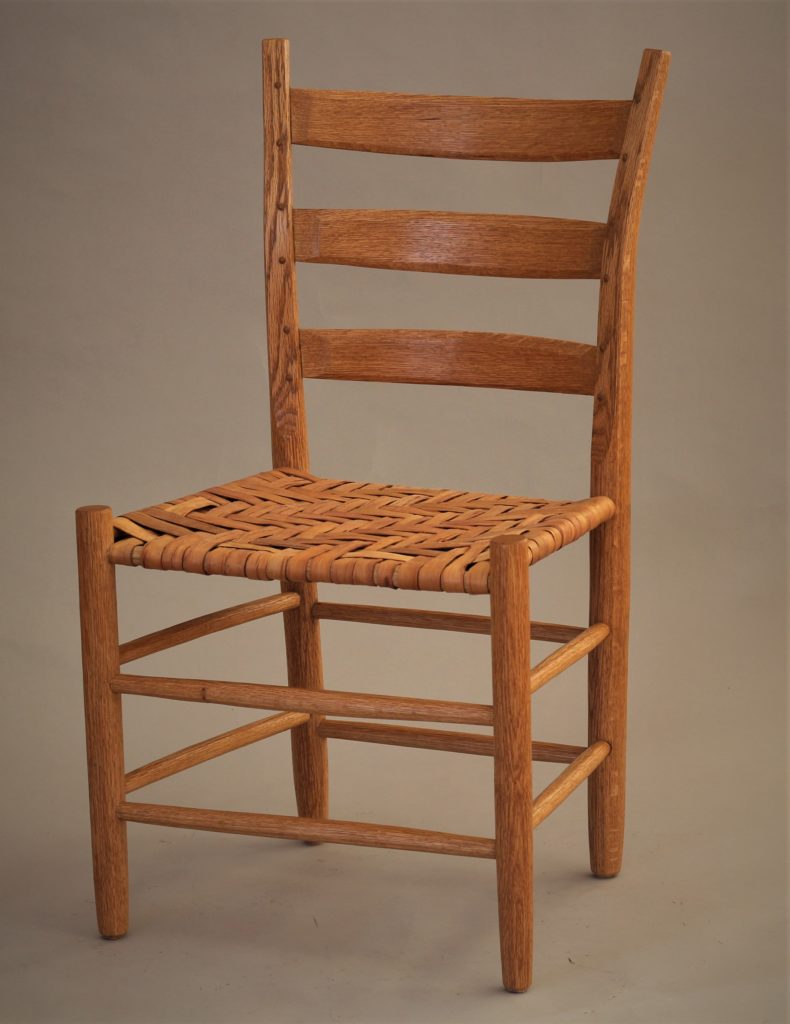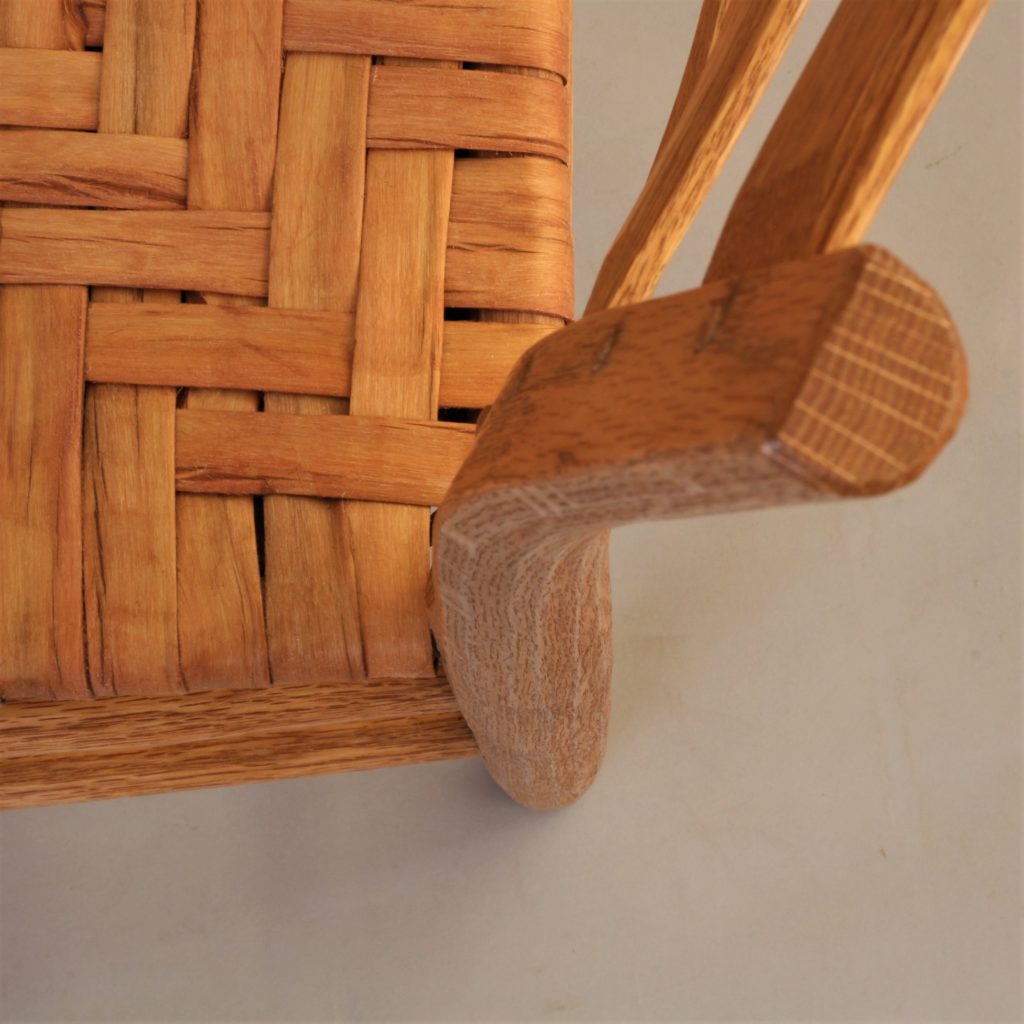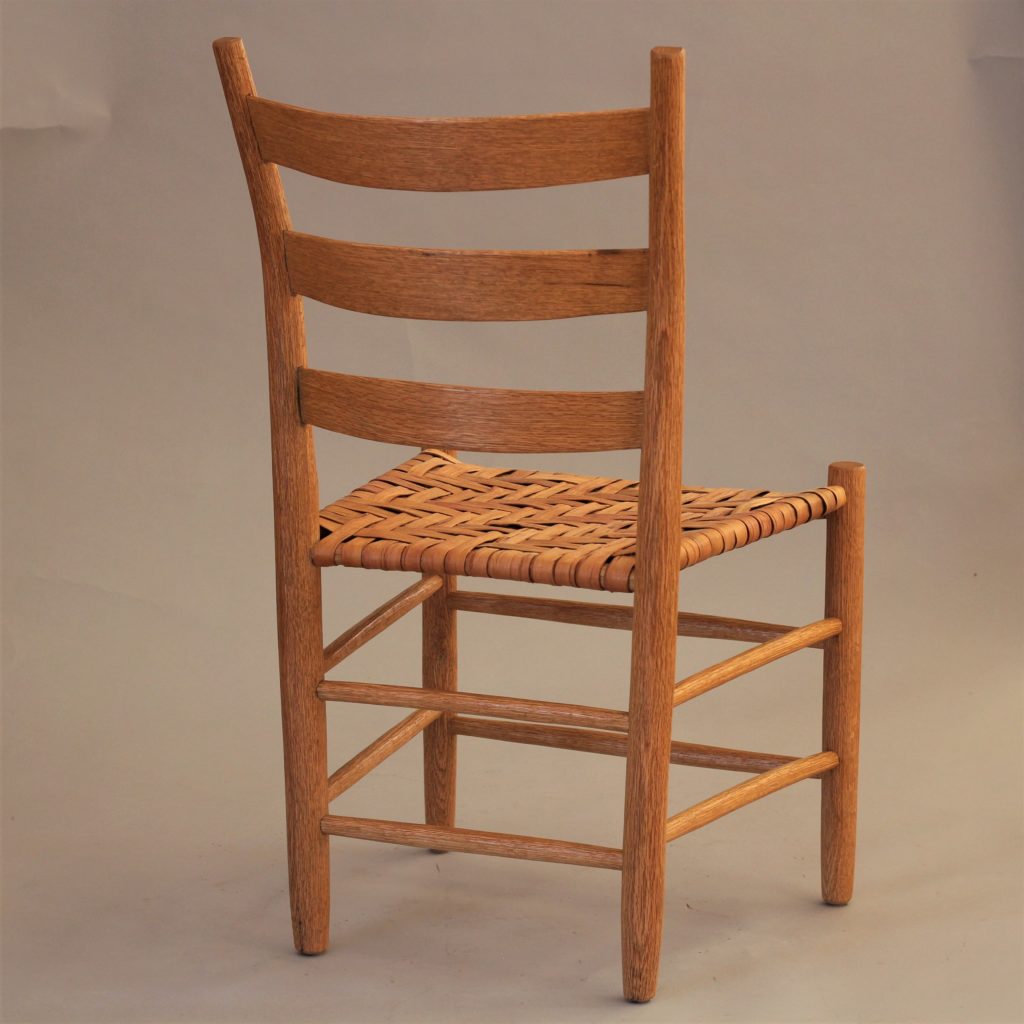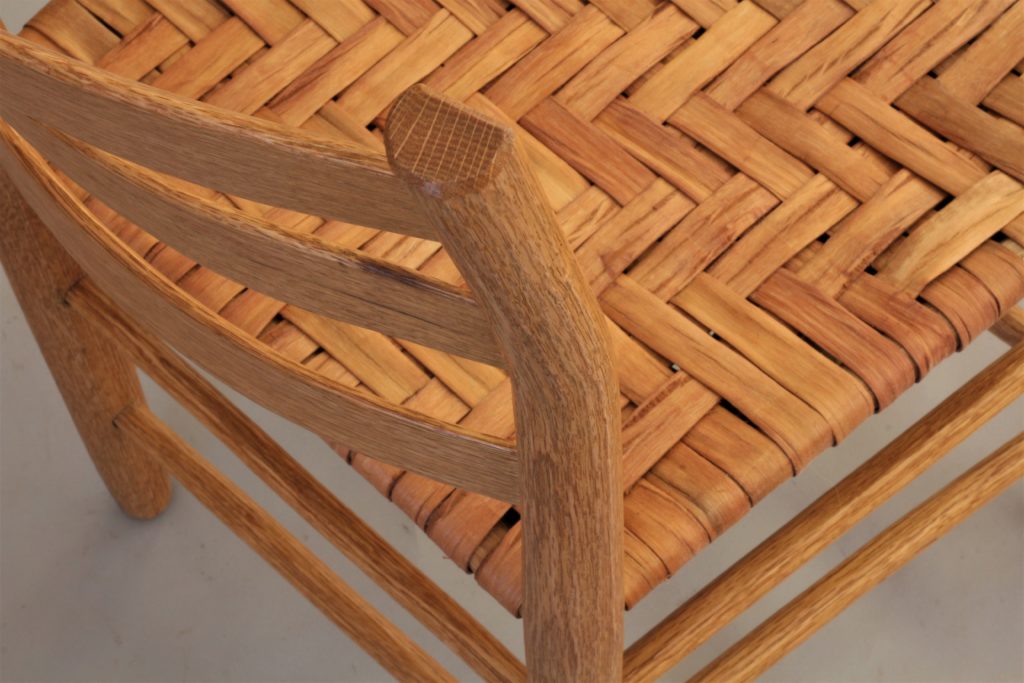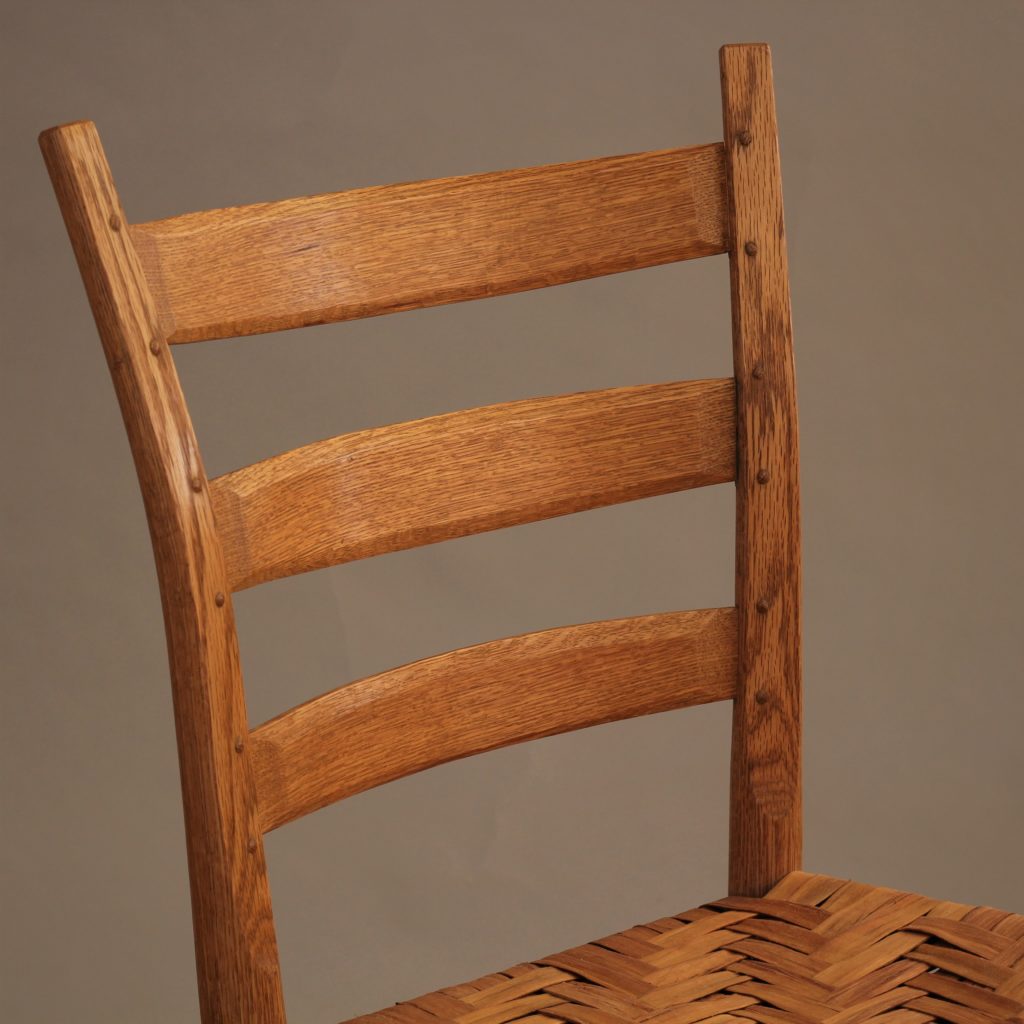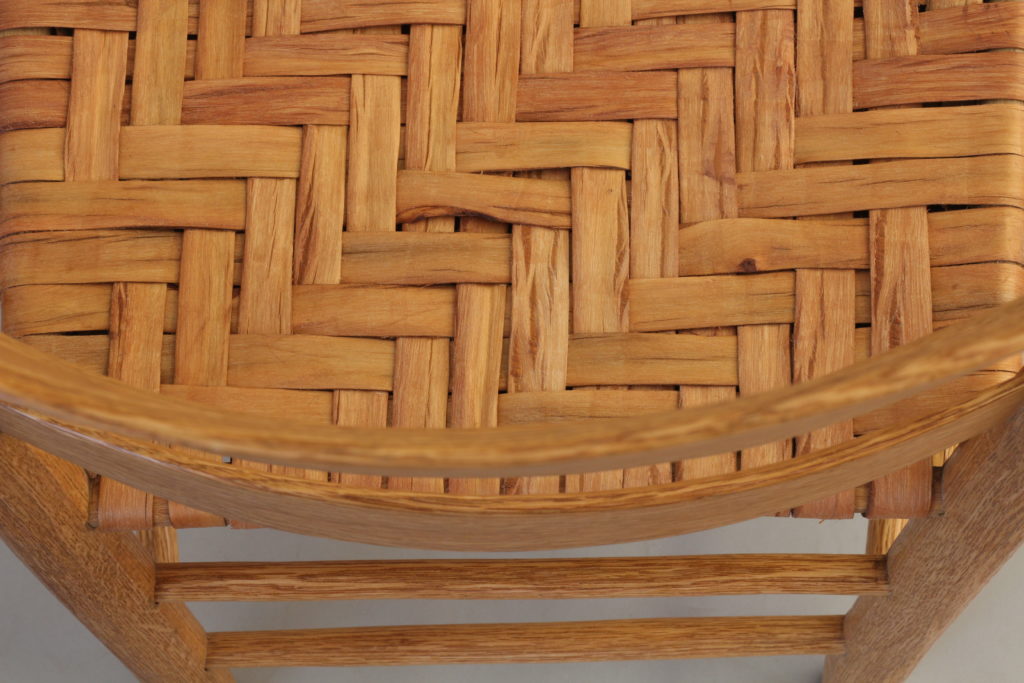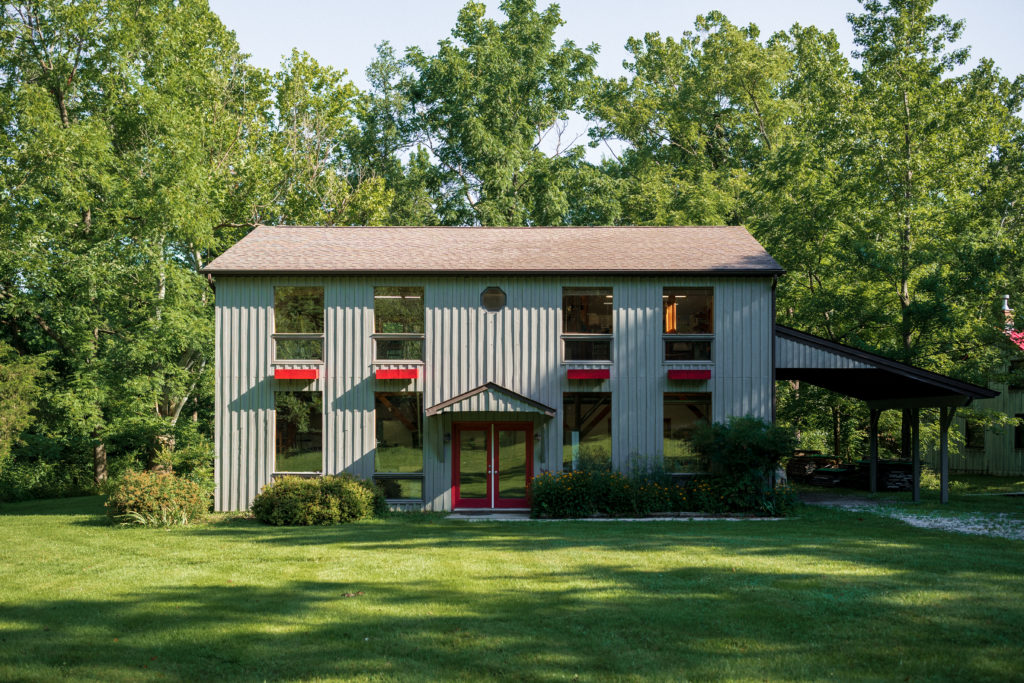Date(s): March 13-17. 9am – 5pm. Five class days
Instructor: Andy Glenn
Price: $1,500
Description: In this class, we will begin the week with the log to collect knock out parts and end the week with a completed chair. Green wood chair making starts with moisture content; the wetter wood of the posts shrinks around the dry rungs. That’s what holds the chair together, as these chairs were traditionally made without the use of nails or glue (though we’ll use a little glue, it’s nice to use for the peace of mind ).
We’ll use primarily hand tools in the class, to shave and shape our parts. We’ll split the log with a froe and maul. Then shave the posts and rungs at the shavehorse. We will steam and bend the back post, which both adds to the appearance and increases the comfort of the chair.
This class is ideal for someone making their first chair or their 20th. It is my hope that someone can take this class and feel confident returning home to make a chair in their shop. We’ll cover all the relevant topics: moisture content, materials, tools and techniques, form making, seat weaving, and finish.
The chair design is characteristic of a traditional Appalachian post-and-rung. Shaved with three slats, bent upper post, and a woven hickory back seat, this design is commonly found around the region.
Lunches provided.
Students: please bring your tool kit and seating material*
* A couple seating options (I’ve listed a few and there are plenty of others )
- hickory bark: collect during our workshop on June 18th
- hickory bark: purchase through Newberry and Sons
- shaker tape: supplied by Shaker Workshops
- fiber rush and other weaving materials: Basket Maker’s Catalog
Tool List:
Needed:
- Drawknife
- Spokeshave (Flat or Round bottomed, flat will be a little easier)
Recommended: (please bring – especially the first eight on this list – but don’t run out to purchase if you don’t own one yet)
- pencil
- utility or pocket knife
- tape measure
- sliding bevel gauges
- tenon or dovetail saw
- sharp chisel
- pocket knife or (small) straight carving knife
- claw hammer
- handsaw (smaller crosscut saw – ideally a tenon saw, though most anything will do)
- framing square or 24″ straight edge
- deadblow or lump hammer
- block plane
- compass (scribe)
- card scraper
We’ll use/cover, but not needed (please bring if you have them):
- froe, maul and wedges
- hatchet
- power tenon cutters
- bevel setting gauge or protractor (a way to find angle for the sliding bevel gauge)

